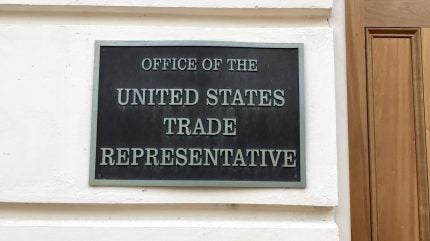
The documents titled ‘Adapting Trade Policy for Supply Chain Resilience: Responding to Today’s Global Economic Challenges’ explore initiatives in trade and investment policy that are designed to bolster the resilience of supply chains.
The topics covered include a framework for resilient trade policies, the textile and apparel sectors’ resilience in the US, rules of origin, countering non-market economic practices, data-driven trade policy development, and sector-specific trade agreements.
The release follows an extensive period of public consultation initiated by the USTR in March 2024 with a request for comments published in the Federal Register.
During this process, USTR representatives engaged with stakeholders through four public hearings with 84 witnesses and reviewed nearly 300 written contributions from diverse entities including labour unions, NGOs focused on labour rights and environmental issues as well as businesses of varying sizes, trade associations, think tanks and foreign governments.
Six strategies for improving apparel supply chain resilience
The six policy papers propose new methods and strategies across several areas:
- Reshaping the Global Trade Paradigm delves into four key aspects of resilience: sustainability, security, diversity, and transparency. It consolidates input from stakeholders and literature reviews, assesses USTR’s efforts to enhance supply chain resilience to date, and lays the groundwork for new tools and methodologies.
- Sustaining Resilient Textile and Apparel Supply Chains examines the US textile and apparel industries within the context of trade agreements, identifies sector challenges, suggests topics for further dialogue and analysis, and proposes trade policy measures to support more resilient supply chains.
- Harnessing Rules of Origin for Resilience scrutinises preferential as well as non-preferential rules of origin, addresses stakeholder concerns regarding their weaknesses, and presents novel policy directions along with areas needing additional examination.
- Countering Non-Market Policies and Practices to Strengthen Supply Chain Resilience discusses how non-market policies and practices can disrupt healthy market competition and supply chain stability. It also proposes strategies to mitigate these challenges.
- Improving Data and Analytical Tools to Promote Supply Chain Resilience underscores research on supply chain sustainability, security, diversity, and transparency; evaluates data-related challenges; reviews governmental data collection related to supply chains; and suggests new approaches for leveraging data resources to overcome current limitations.
- Strengthening Supply Chain Resilience through Sectoral Trade Agreements considers how targeted formal trade agreements can create enforceable standards across specific sectors or industries with like-minded partners to significantly advance supply chain resilience principles.
Each document provides a foundation for ongoing analysis and collaborative efforts involving the USTR, other government agencies, stakeholders, Congress members, and international trading allies to develop effective policy instruments.
Ambassador Katherine Tai said: “The pandemic illustrated that our pre-existing approach to trade, with its principal focus on reducing barriers to maximise short-term efficiency and minimise costs, had created significant vulnerabilities. As economic policy leaders, it is our responsibility to address these flaws. These policy papers distil the insights we have gathered at USTR that point the way forward to adapting trade policy approaches and tools in service of achieving resilience in supply chains.
“This work is crucial to bringing badly needed innovation to trade policy so that, through collaboration with participants in the US and global economy and with Congress and our trading partners, we can make progress in ensuring trade policy works in service of our people and the planet – and not the other way around. We greatly appreciate all stakeholders for sharing your insights and experiences and encourage you to keep advancing these important conversations.”



